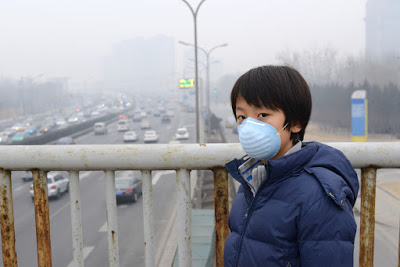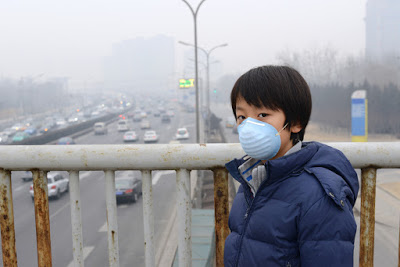One quarter of deaths of children under the age of five worldwide are due to unsanitary or polluted environments, which include air, water, secondhand smoke, and poor hygiene, the World Health Organization (WHO) has said.
These unhealthy and polluted environments can lead to fatal cases of diarrhea, malaria and pneumonia, the WHO said in a report, killing 1,7 million children a year.
"A polluted environment is deadly - especially for young children," said Margaret Chan, the agency's director general. "Their organs and immune systems are evolving, while their smaller bodies and small airways make them particularly vulnerable to polluted air and polluted water."
In his report ("Inheriting a Sustainable World - Atlas of Child Health and the Environment"), the WHO said that a child's dangerous exposure can begin while still in the womb, and continue if the baby or toddler is exposed to pollution. outdoor and indoor air, as well as in passive smoking.
This increases the risk of childhood pneumonia, as well as the lifelong risk of lung diseases such as asthma. Air pollution also increases the lifelong risk of heart disease, stroke and cancer, he said.
The report also pointed out that in families without access to clean water and sanitation, or in places where there is pollution from smoke from unclean fuels such as coal or manure used by family members to cook or warm themselves, children are exposed to higher risk of diarrhea and pneumonia.
Children are also exposed to dangerous chemicals through their food, and the air, water and products around them, he said.
Maria Neira, WHO public health expert, said this was a heavy toll on both the death toll and the incidence of long-term illness and disease, and urged governments to do more to improve health. of children.
"Investing in removing environmental health risks, such as improving water quality or using cleaner fuels, will bring huge health benefits," he said.
Source: KYPE

